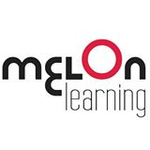Description

Melon LMS

Trainual
Comprehensive Overview: Melon LMS vs Trainual
Melon LMS and Trainual: Comprehensive Overview
a) Primary Functions and Target Markets
Melon LMS:
-
Primary Functions:
- Melon LMS is designed to deliver a wide range of e-learning solutions, offering course management, tracking, and reporting functionalities. It supports various content formats, including videos, quizzes, and documents, integrating seamlessly into existing workflows.
- Provides in-depth analytics and reporting, user management, and customization features like branding and theming.
-
Target Markets:
- Enterprises and educational institutions seeking a scalable platform for training and development.
- Particularly popular among industries with a strong emphasis on compliance and certification requirements such as healthcare, finance, and manufacturing.
Trainual:
- Primary Functions:
- Trainual focuses on business training and onboarding processes, offering a platform to document and store policies, procedures, and processes. It is primarily aimed at systemizing and simplifying employee training and onboarding.
- Features include process templates, automated training workflows, and multimedia support for a comprehensive onboarding experience.
- Target Markets:
- Small to medium-sized businesses (SMBs) and startups in need of a structured approach to employee training and standard operating procedures (SOPs).
- Particularly caters to businesses looking to scale their operations by ensuring consistency and knowledge retention during the onboarding and training phases.
b) Market Share and User Base
-
Melon LMS:
- Generally caters to larger entities due to its extensive range of features and customization options. It tends to have a smaller market share in terms of the number of users compared to more widely adopted LMS platforms, largely due to its niche focus on industries requiring stringent compliance and detailed reporting.
- The user base is more concentrated in geographical regions or sectors with heavy regulatory training requirements.
-
Trainual:
- Holds a more substantial presence in the SMB segment, gaining traction with its easy-to-use, streamlined approach to training and onboarding.
- Typically has a larger user base compared to Melon LMS, as its target market encompasses a broader array of small businesses and it addresses a common need for operational consistency across various industries.
c) Key Differentiating Factors
-
Complexity and Customization:
- Melon LMS offers a more complex and customizable platform with extensive features suitable for large organizations with specialized needs, making it a better fit for comprehensive enterprise-wide learning management.
- Trainual, on the other hand, simplifies the user experience, focusing on ease of use and quick deployment, which is ideal for SMBs that require straightforward onboarding solutions without extensive customization.
-
Focus and Functionality:
- Melon LMS is more suited to traditional e-learning delivery and compliance training, with robust tracking and reporting tools that cater to highly regulated industries.
- Trainual emphasizes structured internal knowledge sharing and staff training, largely focusing on documenting specific business processes and embedding company culture effectively.
-
User Engagement and Interaction:
- Trainual invests heavily in facilitating team engagement and collaboration, using interactive content to enhance user experience, which appeals to companies looking to build an engaged workforce.
- Melon LMS provides powerful content delivery and tracking but may lack the same level of interactive engagement features aimed at fostering a community-like user experience.
-
Deployment and Integration:
- Both platforms offer SaaS-based deployment, but Melon LMS often provides deeper integrations with other enterprise systems, making it a choice for companies looking for comprehensive ecosystem compatibility.
- Trainual emphasizes simplicity in set-up and integration, ensuring that businesses can quickly adapt the software into their existing processes without extensive IT support.
This comprehensive overview positions both products distinctly within the LMS landscape, highlighting their unique offerings and appeal to different segments of the market. Each platform serves its niche effectively, with Melon LMS focusing on compliance and comprehensive learning needs, while Trainual addresses the simplified onboarding and procedural training demands of SMBs.
Contact Info

Year founded :
Not Available
Not Available
Not Available
Not Available
Not Available

Year founded :
2018
Not Available
Not Available
United States
http://www.linkedin.com/company/trainuals-sadcs2
Feature Similarity Breakdown: Melon LMS, Trainual
To provide a detailed comparison of Melon LMS and Trainual, we need to break down their core features, user interfaces, and unique selling points. Here is a general overview based on common aspects of Learning Management Systems (LMS) and documentation/training platforms:
a) Core Features in Common
-
Course Creation and Management:
- Both Melon LMS and Trainual likely offer tools to create, manage, and distribute training material. This typically includes uploading content in various formats (PDF, video, etc.), organizing them into courses or modules, and setting up quizzes or assessments.
-
User Management:
- The ability to manage users, including adding, removing, or editing learners' information, assigning them to specific courses or programs, and tracking their progress.
-
Reporting and Analytics:
- Both platforms likely offer reporting tools that allow administrators to track learner progress, completion rates, assessment scores, and other relevant metrics to gauge training effectiveness.
-
Content Library:
- They might have a content library or integration capabilities to access a range of pre-made courses or training materials.
-
Compliance Tracking:
- Many LMS platforms provide functionality to ensure that users complete mandatory training, particularly for compliance purposes.
b) User Interface Comparison
-
Melon LMS: Typically, an LMS like Melon would focus on traditional educational interfaces, with dashboards for learners and instructors that provide an overview of courses, progress tracking, and announcements. The design is often tailored to prioritize course navigation and accessibility, featuring clean lines and intuitive navigation elements.
-
Trainual: Trainual is often known for its ease of use and streamlined design, catered toward small to medium-sized businesses to facilitate onboarding and training processes. The interface might be more intuitive for users without a formal educational background, focusing on quick access to SOPs and training modules with a modern, user-friendly design.
c) Unique Features
-
Melon LMS:
- Formal Education Tools: As an LMS, Melon might have more advanced features supporting traditional educational environments like advanced assessment tools, proctoring capabilities, or integrations with other educational technology.
- Certification: Features for issuing certificates upon course completion, which may be more robust than those in more business-oriented platforms.
-
Trainual:
- Business Process Documentation: Trainual is designed to document business processes as well as training, thus offering tools to create, organize, and update SOPs that may not be as comprehensive in standard LMS platforms.
- Template Library: It likely offers a wide selection of templates tailored to different business roles and industries, simplifying the setup process for small businesses.
- Integration Focus: Primarily focused on business applications, Trainual often integrates seamlessly with popular business tools like Slack, Zapier, and G Suite.
These insights provide a general comparison. However, the specific features and UI elements can differ based on product updates and versions. Prospective users should explore demos or trials for a hands-on experience.
Features

Comprehensive Course Management
Support and Resources
User-Friendly Interface
Performance Tracking
Engagement and Collaboration

Team Knowledge Sharing
Compliance and Consistency
Documenting Processes
Onboarding New Employees
Best Fit Use Cases: Melon LMS, Trainual
Melon LMS and Trainual cater to different learning and training needs, each offering distinct features and benefits that make them suitable for specific types of businesses and scenarios.
Melon LMS
a) Best Fit Use Cases:
-
Educational Institutions: Melon LMS is ideal for schools, universities, and other educational institutions that require a comprehensive system to manage courses, students, and learning resources. Its robust features support formal education settings well.
-
Large Enterprises: Companies with extensive training programs and a large number of employees benefit from Melon LMS’s ability to handle complex training scenarios. It offers scalability, customization, and integration capabilities to meet enterprise-level needs.
-
Compliance Training Needs: Industries that require strict adherence to regulations and standards, such as healthcare or finance, can utilize Melon LMS for managing and tracking compliance training effectively.
-
Corporate E-Learning: Businesses looking to offer in-depth professional development opportunities through detailed modules, assessments, and tracking capabilities can leverage the LMS features offered by Melon.
d) Industry Verticals and Company Sizes: Melon LMS is designed to cater to mid-to-large businesses, educational institutions, and sectors with specific regulatory requirements. Its adaptability makes it a potential fit for a diverse range of industries seeking comprehensive training solutions.
Trainual
b) Preferred Scenarios:
-
Small to Medium-Sized Businesses (SMBs): Trainual is an excellent choice for SMBs that need a straightforward, user-friendly tool to document processes and onboard new employees quickly.
-
Companies Focused on SOP Documentation: Organizations that prioritize documenting standard operating procedures (SOPs) and ensuring consistent execution of tasks across the team will find Trainual particularly effective.
-
Rapidly Growing Startups: Startups experiencing rapid growth benefit from Trainual’s structured approach to onboarding, enabling them to scale their training processes efficiently.
-
Remote Teams: Businesses with remote or distributed teams can use Trainual to maintain consistent training and operations documentation accessible from anywhere.
d) Industry Verticals and Company Sizes: Trainual serves a broad spectrum of industries but is particularly well-suited to smaller businesses, startups, and remote teams due to its focus on simplicity and ease of use. It's ideal for company sizes ranging from small to medium, where straightforward onboarding and SOP documentation are critical.
In conclusion, both Melon LMS and Trainual have specific strengths that make them appropriate for different organizational needs. Melon LMS excels in environments requiring extensive, structured, and scalable training systems, while Trainual is optimal for smaller businesses needing practical, clear, and concise documentation and onboarding solutions.
Pricing

Pricing Not Available

Pricing Not Available
Metrics History
Metrics History
Comparing undefined across companies
Conclusion & Final Verdict: Melon LMS vs Trainual
To provide a comprehensive conclusion and verdict for Melon LMS and Trainual, let's examine each product's overall value, pros and cons, and provide recommendations for potential users.
a) Best Overall Value
When deciding which product offers the best overall value, it often depends on specific business needs and the scale of implementation. However, generally speaking, Trainual tends to offer a better value for small to medium-sized businesses that are looking for a streamlined and user-friendly solution for training and onboarding. Its focus on easy documentation and process management makes it highly suitable for businesses aiming to quickly get new team members up to speed.
Melon LMS, on the other hand, might be more appealing for organizations that prioritize a more traditional e-learning structure with robust learning management features. It can be better for larger enterprises or educational institutions that need a comprehensive system to create, manage, and track various learning programs.
b) Pros and Cons
Trainual:
-
Pros:
- User-friendly interface with straightforward setup.
- Efficient document and process management for onboarding.
- Integrated with multiple third-party applications for enhanced functionality.
- Allows easy updating and customization of training content.
-
Cons:
- May lack advanced features found in more traditional LMS platforms.
- Best suited for smaller teams; could be less effective for very large organizations.
Melon LMS:
-
Pros:
- Offers a wide range of LMS features suitable for traditional e-learning.
- Scalability for larger enterprises and educational institutions.
- Strong tracking and reporting capabilities.
- Supports various learning formats, including video and interactive content.
-
Cons:
- Might have a steeper learning curve and require more setup.
- Can be more feature-rich than necessary for small to mid-sized businesses focused on simple onboarding.
c) Recommendations for Users
-
For Small to Medium Businesses: If your primary goal is efficient and straightforward employee onboarding and process management, Trainual is likely the best option. Its simplicity and integration capabilities can help organizations quickly implement it without extensive technical resources.
-
For Larger Organizations or Educational Institutions: If you require a feature-rich platform that can support diverse training programs and detailed analytics, Melon LMS might be the preferred choice. Its robust capabilities can accommodate complex learning structures and offer comprehensive learning experiences.
-
Consider Future Growth and Needs: If your organization expects significant growth or diversification of training needs in the future, it may be worth considering Melon LMS for its scalability and comprehensive features.
Ultimately, the decision depends on your organization's specific requirements, resources, and strategic goals for workforce training and development. Assessing these variables will help in making the most informed and beneficial choice between Melon LMS and Trainual.
Add to compare
Add similar companies



